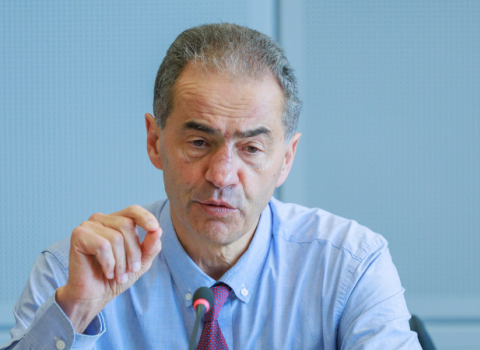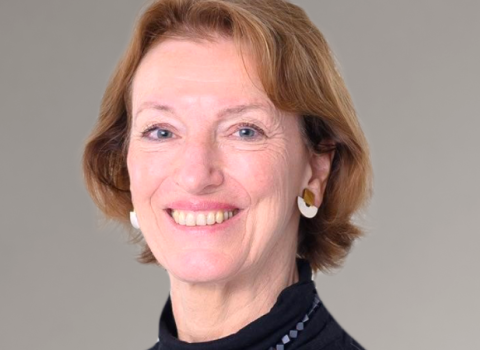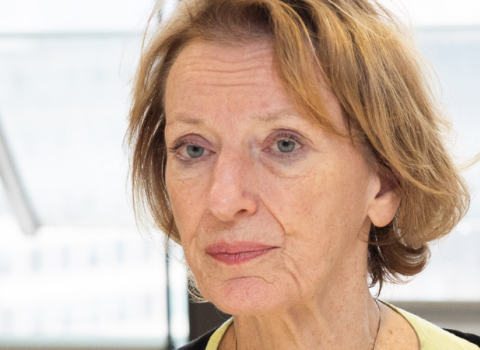Two researchers from Trinity College Dublin – Assistant Professor Claire Gillan and Dr Alessandro Lunghi – have been awarded prestigious European Research Council (ERC) Starting Grant Awards worth €3 million in the latest round of results, which have been released 3rd September 2020.
Additionally, another ERC Starting Grant project is currently entering its launch phase at Trinity as Al Maktoum Associate Professor, Mohamed Ahmed, recently began his project, which was retained on the funding list from a previous round.
Also listed as a Trinity winner is Dr Lorna Lopez, but she has recently taken up a position in NUI Maynooth, where she will carry out her project.
Awarded annually to individual researchers to help them build their own teams and conduct pioneering research across all disciplines, ERC Starting Grant awards are highly competitive.
Professor Linda Doyle, Dean of Research at Trinity, said:
“We are very proud of our three award-winners and wish them our warmest congratulations. Claire, Alessandro and Mohamed’s fascinating projects span very different disciplines but have in common the need to use innovative, creative approaches to research, and all three promise to make genuine impacts.
“ERC Starting Grant awards are exceptionally competitive, and provide crucial support for bottom-up frontier research which can often help to address significant societal challenges. Claire, Alessandro and Mohamed’s funding will also support a number of highly talented PhD and Postdoctoral researchers. This is vital because it bolsters the very foundations of excellent academic research and will nurture the next generation of research leaders. It is especially important right now as postdoctoral and early career researchers are particularly vulnerable to the negative impacts of COVID-19 due to the knock-on effects of funding cuts and reduced faculty opportunities at institutions all over the world.
“While we celebrate the success of our colleagues we note that the recently approved European Council budget for Europe (2021-2027), as it stands, will negatively impact the ERC Budget. This is of huge concern. The unprecedented challenge of Covid-19 provides a stark example of why research must be substantially supported. Trinity applauds the ongoing European Parliament negotiations to secure a more ambitious investment in research and innovation under Horizon EU.”
Trinity’s winners
Claire Gillan, HABIT
Claire Gillan, from Trinity’s School of Psychology, is also a PI in the Trinity College Institute of Neuroscience (TCIN), the Global Brain Health Institute (GBHI) and an academic collaborator with ADAPT, the SFI Research Centre for Digital Media Technology.
Her project, HABIT: Making and Breaking a Habit, will use a smartphone app – ’neureka' –that her lab launched in June to carry out the most in-depth investigation of habits ever attempted.
Following large numbers of individuals over many weeks, both remotely using the app and in-person using electrophysiology, she will reveal the precise brain changes that support this most fundamental form of learning. She will use these methods to understand not just how to promote good habits and squash the bad ones, but also to develop new ways that we can tackle disorders of compulsivity – from addiction to obsessive-compulsive disorder.
Leveraging the power of citizen science through her already successful smartphone app (www.neureka.ie), her project is expected to reveal how we can harness the power of habits in our lives and better understand key aspects of mental illness. Download the app to get involved now! http://onelink.to/csrw86
Professor Gillan said:
“It’s definitely not a traditional way to do research, so we are really delighted that the ERC have decided to back our work. We hope that by harnessing people-power through our smartphone app, HABIT will be truly disruptive in the field of mental health neuroscience."
Alessandro Lunghi, AI-DEMON
Alessandro Lunghi, from Trinity’s School of Physics, is also a Research Fellow at the Trinity Centre for Research on Adaptive Nanostructures and Nanodevices (CRANN) and AMBER, the SFI Research Centre for Advanced Materials and BioEngineering Research.
He will lay the foundations for a major technological breakthrough with his project AI-DEMON: Artificial intelligence design of molecular nano-magnets and molecular qubits.
AI-DEMON seeks to design magnetic molecules with long spin lifetimes at ambient temperatures by tuning the main microscopic interaction responsible for spin relaxation: the spin-phonon coupling. Alessadnro will use novel techniques in his research, which is ultimately expected to represent a strong disruption in the approach to theoretical modelling and the discovery of new magnetic molecules.
His work will propel the field into a new and modern era and make significant impact beyond the field of molecular magnetism – with important developments expected in the fields of bio-inorganic chemistry, for example.
Dr Lunghi said:
“I am incredibly grateful to the European Research Council for this amazing opportunity. Thanks to this grant I will establish a new research group at Trinity College Dublin and pursue key technological goals related to the design of materials for quantum technologies.
“I have always been fascinated by the possibility of designing new materials starting from nothing more than the knowledge of the laws of physics. In this project, my team and I will attempt a fully automated computational design of magnetic molecules for quantum technological applications. Artificial intelligence methods will be at the core of our approach and I expect we will be able to push forward the current boundaries of knowledge on quantum magnetic materials.”
Mohamed Ahmed, APCG
Mohamed Ahmed recently began his ERC Starting Grant-funded project APCG: Arabic Poetry in the Cairo Genizah having joined Trinity’s School of Languages, Literatures and Cultural Studies as part of the formation of its new Al Maktoum Centre for Middle Eastern Studies.
His project aims to make the entirety of Arabic and Judaeo-Arabic poetry in the Cairo Genizah accessible to both academic scholars and to the public via a comprehensive database and in critical editions.
His project will reveal hitherto hidden aspects of social and cultural history of the Jews in the Middle East with regard to literacy, education and intercommunal relations and explore hierarchies, interpersonal relationships and the social function of poetry in medieval and early modern Egypt through the study of Genizah poetry.
Professor Ahmed said:
“I feel extremely privileged to have secured a grant from the European Research Council. This prestigious award will allow me to lead academic teamwork to expand my work on Arabic Poetry in the Cairo Genizah comprehensively. The project investigates a neglected collection of Arabic and Judaeo-Arabic fragments held at arguably the most important Jewish treasure trove: the Cairo Genizah. The fragments, numbered in the hundreds, constitute a unique source for understanding mediaeval and Early Modern Egypt from three main perspectives: Arabic studies, Jewish social and cultural studies, and anthropological studies.”





 A unique international forum for public research organisations and companies to connect their external engagement with strategic interests around their R&D system.
A unique international forum for public research organisations and companies to connect their external engagement with strategic interests around their R&D system.